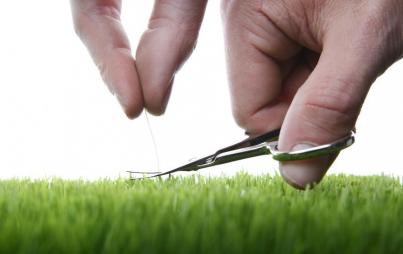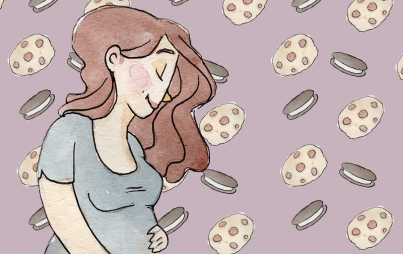
Photo by Josefa nDiaz on Unsplash
This article first appeared on Role Reboot and has been republished with permission.
Even if you’re the kind of person who acknowledges the arbitrariness of a new year and refuses to set goals according to the calendar, odds are that a few weeks ago, your social media was full of Top Nines, fresh starts, and declarations to change bad habits. Change was on your mind, regardless of whether or not you wanted it to be.
I moved three days before Christmas. There was the packing and the loading and the unloading and the unpacking and the organizing and the cleaning of the old apartment, and that’s exactly why I was a potato for the rest of the holiday break. I unapologetically sat around in my own filth. I binge-watched shows that had been on my back burner all semester. But once the flood of new year idealism hit my Facebook feed, I dragged myself onto the exercise bike and pumped my tired thighs. Moving boxes is great cardio, but afterward, I still needed to feel like I was doing something. The goal-setting around me was contagious.
Last month, I read Kerry Graham’s piece, “Why I’m a Relentless Overachiever.” I identified with it so strongly, right down to the oddly serendipitous ways our lives overlap, that I easily could have written it myself. I too have always prided myself on good grades. My dad and I used to sit down at the kitchen table nightly so that he could grill me over my weakest subject, math, and our sessions always ended one of two ways. I would either “get it” and feel like I could take on the world, or fail so spectacularly at grasping the concept that I’d beat myself up for the rest of the night.
My self-worth became inextricably linked to how well I excelled at something.
But as you can probably imagine, there was a dark side to hinging my entire sense of value on achievement vs. failure. When I missed a question during the first round of the seventh grade geography bee, I burned hot with shame and convinced myself in a matter of seconds that I was an outrageous disappointment. When someone I had a crush on didn’t feel the same, I hated myself intensely for not being “good enough.” That’s the thing about perfectionism. When you chase something unattainable, you complete a self-fulfilling prophecy.
I have since accepted that I’ll never be a math whiz or win every competition, and that unrequited love is a fact of life. I’m not good at a lot of things and am actually pretty bad at some of them, like playing sports and doing taxes. My knowledge gaps (I went through most of my life not knowing how to pronounce “colander”) are more hilarious to me than embarrassing, and I once laughed so hard when my heel broke and I went sailing onto the floor of a hotel lobby that I peed in my fancy gown. I am imperfect, clumsy, and scatterbrained, but when it comes to the things I actually do well, I continue to hold myself to high standards. Like Kerry, I do not want to equate my worth with how much I accomplish, but I also do not want to abandon the pursuit of excellence; I enjoy achieving.
You Might Also Like: Stop Beating Yourself Up — You're Doing Your Best
How healthy is it to regard achievement as a part of identity? American grind culture encourages us to work against our circadian rhythms, pound coffee, and forgo sleep to get as much done as possible. “On that grind” turns mundane or arduous tasks into shining moments of accomplishment, worthy of praise and envy. But on the flip side, the self-care movement has problems of its own. Emotional wellness is now commodified and the rhetoric surrounding it can push us into a paradoxically unhealthy state of lethargy and avoidance. You can’t spend every day working to exhaustion. You can’t spend every day getting a pricey manicure or melting into the couch either.
For me, balance is about finding the distinction between obligation and enjoyment.
I hated math (really, I still do) and would have rather done anything else than sit around the kitchen table for all those hours. I did not enjoy my post-Christmas workout sessions; I climbed on that stupid bike when I was exhausted because everyone on social media was being Productive and I felt guilty for not being Productive too. However, I also found myself excited about the semester to come and eagerly started outlining the coming months’ schedule in my planner. A little over the top? Maybe, but I genuinely love school. No real or imagined person is forcing me to get organized or complete assignments weeks in advance. I’m motivated because I find the work fulfilling, just as I had left my previous grad program because I didn’t.
A friend once told me that he writes and photographs rather than being a writer, a photographer, because he enjoys thinking of himself as separate from his hobbies. It made me think of one of my favorite lines from Annie Dillard’s Pilgrim at Tinker Creek: How we spend our days, of course, is how we spend our lives. I personally enjoy thinking of myself as a writer, a scholar, a professor because these identities represent activities that bring me joy. They help me remember my purpose without having to make yearly resolutions. And because they are each only a part of who I am, I never lose sight of the person underneath who sometimes, unapologetically, needs to be none of them.








